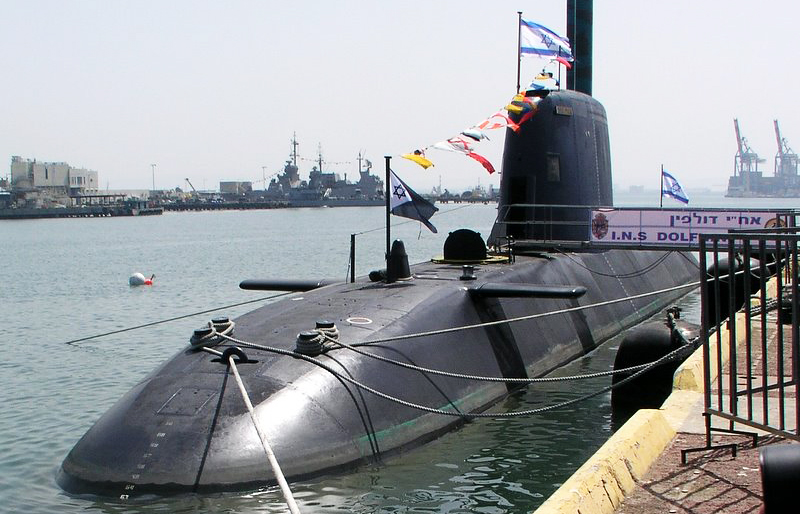According to the Israeli Maariv daily, the planned purchase of Geman submarines aims to replace vessels in its existing Dolphin fleet. Within the next decade the oldest submarines which began entering service in 1999, will be decommissioned.
The Israeli defence ministry declined to comment on the report when contacted by AFP, while Maariv reported that “the new submarines are said to be more advanced, longer, and equipped with better accessories”.
The deal is expected to be wrapped up next month in Berlin between senior officials who have secretly negotiated the details of the arrangement over the last months.
The three more advanced submarines from Germany come at a hefty combined price of $1.3 billion, the Israeli newspaper reported Friday.
The deal between Israel and Germany is expected to be signed by November 7.
The Dolphins apparently play a much larger role in Israel’s self-defense plans. The reports indicate that they will carry a portion of Israel’s nuclear deterrent, in the form of nuclear-armed, submarine-launched cruise missiles (SLCMs). Theoretically, this gives Israel the third leg, together with ballistic missiles and fighter-bombers, of the nuclear triad.
Israel already owns five new state-of-the-art German submarines, with a sixth due for delivery in 2017, Maariv added.
The Dolphin 2-class are the largest submarines to have been built in Germany since World War II. The Dolphin class boats are the most expensive single vehicles in the Israel Defense Forces.
In 2012 the German news weekly Der Spiegel quoted former high-ranking German defence ministry officials saying that Berlin has always worked on the assumption that the Dolphin-class vessels would be armed with nuclear warheads on the Dolphin-class vessels.
German Chancellor Angela Merkel’s office said at the time all submarines had been delivered to Israel unarmed. “The federal government will not speculate on subsequent arming,” spokesman Steffen Seibert told the weekly at the time.
Robert Farley, from nationalinterest.org says that the Dolphins would be equipped with missiles armed with nuclear warheads. Israel has between 100 and 200 warheads and missiles capable of delivering them.
Farley is an assistant professor at the US Patterson School of Diplomacy and International Commerce. His work includes military doctrine, national security, and maritime affairs.
Israel is the Middle East’s sole if undeclared nuclear power, refusing to confirm or deny it’s nuclear arsenal.
Farley says Israel is not the first country to attempt a subsurface nuclear deterrent with conventional submarines. Early Soviet ballistic-missile submarines relied on conventional propulsion, as did the earliest Chinese prototype missile sub.
However, conventional subs have distinct disadvantages relative to their nuclear kin in deterrent missions. Most importantly, they lack the range to remain on station for extended periods of time without access to supply tenders or friendly bases, according to Farley.
The IDF’s primary submarine base is at Haifa, on the Mediterranean with passage through the Suez Canal. But as a result, the Israeli nuclear deterrent remains at the whim of the Egyptian government.



No comments.
By submitting a comment you grant Free West Media a perpetual license to reproduce your words and name/web site in attribution. Inappropriate and irrelevant comments will be removed at an admin’s discretion. Your email is used for verification purposes only, it will never be shared.